Can Fat Be Healthy?
“Doc, I’ve been avoiding the Hateful 8 seed oils, cutting my fruits and starchy foods, eating more vegetables and protein-rich foods as you advised, and I’ve lost seven pounds in two weeks! But the idea of eating full-fat cheese and real butter, and egg-yolks … I mean, I just can’t get my head wrapped around the idea that fatty foods can be good for me.”
There are plenty of health benefits from eating foods that are naturally high in fat, and fat-burning may be my favorite.
This article is continued below...(scroll down)
It helped. I feel great.
"It’s helped. I feel great."
Kobe Bryant
NBA baskeball player
This has been life changing
"Let me tell you this has been life-changing. I have all of her books, in audible and ebooks! I have gotten rid of all the hateful 8 oils. I have trained my body to eat its own previously toxic body fat. Download that pod it's a game changer!"
Megyn Kelly
Life changing
Deep Nutrition changed my life.
Jesse Watters
Fox News Primetime host
Saved my life
I would like to thank you for literally saving my life. Back in February, I had to be hospitalized while on vacation in Phoenix with an A1C of 11% and had to start taking 2 types of insulin and 2 other meds. I read the Fatburn Fix in April, and followed the program to a tee, and I’m down by 15 pounds, 6.8 A1C, and only one once weekly diabetes medicine. Prior to reading the book, it was almost impossible for me to lose weight as a diabetic.
Leontyne Tompkins
I feel free
For the last month, I have really been reading all labels on everything. I have completely remove those 8 oils you talk about. I must tell you, I feel great! I have more energy and I am now 197 lbs (have always been around 205 to 210lbs). I eat potatoes with real butter, grass fed steak, pasta with the right toppings. I eat everything! I seem to crave less sugar. I love it!
Robert Kirkendall
I feel so much better
I had terrible aches and pains everywhere in my body, my hands, shoulders and knees. I feel so much better and the way I feel is motivating me every day! Thank you
Mike Deb Wootan Burcin
Better than ever
I am an anesthesiologist in Orlando and a huge fan of both of your books! I have been incorporating your principles for the last 10 months and feel that my health is better than ever.
Marnie Robinson, MD
My allergies disappeared
The biggest difference for me (and a surprising one) is that my allergies have almost completely disappeared! This is a big deal for me, because I’ve had allergies most of my life and they have often affected what I do which is a teaching music in [a public school district]. In general, I feel much better and have more consistent energy throughout the day.
Erica Turrell
Heart Palpitations have Stopped
I’ve lost 20+ pounds (also fasting 16-24 hours daily) and haven’t had palpitations except for one occasion — I had a mini bag of Fritos for the first time in July. And, I feel better now on a daily basis than I ever did all through college.
Mike Wright
Deep Nutrition and Fatburn Fix reader
I’ve lost over 50 pounds
I’ve lost over 50 pounds. I’m 56 years old. Cutting processed food and unhealthy fats from my diet was one of the first things I did on my health recovery journey...I went cold turkey off the bad oils. Emptied my pantry into the trash and just started eating real food
Mitzi Wilkinson Champion
Knowledge I didn’t know I needed
Your Fatburn Fix book is amazing, my friend. Thank you! I’m an Functional Nutritional Therapy Practitioner and I know my stuff. This is the extra layer of knowledge I didn’t know I needed. Well done!
Jennifer Dillman
Fatburn Fix reader
Lost a solid 20 lbs and my bloodwork is great
I have lost a solid 20 lbs and my bloodwork (after 3 months of eating your way) was even better! I was metabolically healthy (per your book) before I read your book, but barely. Lowering my weight, sealed the deal! I have been talking about you and your book to anyone who will listen...Thank you for all you’ve done and what you continue to do! You are changing lives for the better!
Missy Cramer
FatBurn Fix reader
Lost 20 lbs I could never shed
I love your Fatburn Fix! Has helped me so so much! I have had the dreaded weight all my life - 20 or so pounds I could never shed. I have lost that now. I only eat 2 meals a day lunch and dinner with a glass of milk or cappuccino around 4 to hold me over. No snacking and not bad oils. It has been the key to unlocking my fatburn. I work out in the am and believe I am burning fat for energy not from food!
Lauren Smith
I feel great
My waist is four inches smaller. I feel great and many of the minor aches and pains that I had (knees and lower back) are gone. Also, my muscle tone is amazing, even though I have not increased my workout routine.
Richard Janelle
Completed Dr Cate's online course
The go-to for strength and conditioning coaches
Whenever I advise my clients about eating to perform I go straight to what I have learned from Dr. Cate. Her book Deep Nutrition has become the go-to for strength and conditioning coaches across the country.
Kent Matthes
Major League Baseball Agent with WME Sports
Dismantles the lie
Dr. Cate dismantles the lie that seed oils are healthy, which may the biggest lie about nutrition and health because it’s so insidious.
Ken D Berry, MD
Author of Lies My Doctor Told Me
She knows the chemistry
Dr. Cate alerts us to the harms of seed oils and she’s convincing because she knows the chemistry better than anyone.
Dr. Drew Pinskey, MD
Globally recognized internal medicine and addiction medicine specialist, media personality, LoveLine Host, and New York Times bestselling author
No one is better at communicating nutritional truth
Dr. Cate has had the single greatest impact on how we talk to people about fueling for both performance or durability. While we all are a little unique, the foundational principles of human nutrition are immutable. If you are looking to create a more durable, resilient body, no one is better at communicating nutritional truth than Dr. Cate.
Dr. Kelly Starrett
Physiotherapist coach and New York Times and Wall Street Journal bestselling author
Highly recommend The Fatburn Fix
Dr. Shanahan has had a significant impact on my practice of medicine. I am known as a Low Carb Doctor, but I never really appreciated the negative effects of processed seed oils on the health of my patients. I highly recommend The Fatburn Fix to my patients and have a loaner copy in my waiting room. It is amazing how quickly blood sugars and overall health improves with cutting seed oils. It is not just about the carbs!
Dr. Brian Lenkzes, MD
CEO of LowCarbMD San Diego, co-host of Low Carb MD Podcast and host of Life's Best Medicine Podcast
Respected in the sports world
Dr. Cate reordered my diet when I was with the L.A. Lakers, and the benefits, for me personally, were felt immediately and have served me to this day. I’ve come to take real food so seriously I started a small family farm. I know of no M.D./nutritionist more respected in the sports world than Dr. Cate Shanahan.
Chris Kaman
NBA Player
Brought seed oil issue front and center
Cate brought the seed oil issue front and center. Healthy fats matter. So much so that I created an entire product line to swap out bad fats with good.
Mark Sisson
Founding Father of the Primal/Paleo Movement
Optimal health starts with food
If you want to understand how optimal health starts with food, start with Dr. Cate. Her book Deep Nutrition leaves you with an appreciation of the profound relationship between our genes and the planet, inspiring us to be good shepherds of both.
Dallas Hartwig
Attribution author of The Whole 30
Helped me with endurance
Deep Nutrition really helped me with endurance. I started to feel better as a player. I was able to run more, I was able to be more active …and I just decided to keep going with it to this day.
Dwight Howard
NBA Player
Silver bullet for me
Dr Cate’s teachings helped me lose 60 pounds like it was nothing. It was like a silver bullet for me.
Paul Grewal, MD
Dr Grewal Internal Medicine, MD, author of Genius Foods
Radically improve your health…
Dr. Shanahan has provided a solid reference that deserves a place in the library of anyone who is seriously interested in nutrition. Her perspective on the vital role that healthy fat has in our diet is novel and, if implemented, can radically improve your health.
Dr. Joseph Mercola
Author of Fat for Fuel and Founder of Mercola.com
Pull up a chair…
I have based my work on the idea that getting the right kinds of healthy fats into your body and avoiding the worst fats is essential to optimal health. I've interviewed dozens of the world's top experts about this, and I know of no one who speaks more eloquently on this topic than Dr Cate. If she’s talking fats, pull up a chair. Take notes.
Dave Asprey
Author of the Bulletproof Diet
The key to unlocking my fatburn
I love your Fatburn Fix! Has helped me so so much! I have had the dreaded weight all my life - 20 or so pounds I could never shed. I have lost that now. I only eat 2 meals a day lunch and dinner with a glass of milk or cappuccino around 4 to hold me over. No snacking and not bad oils. It has been the key to unlocking my fatburn.
Lauren Smith
Saved my life
I would like to thank you for literally saving my life. Back in February, I had to be hospitalized while on vacation in Phoenix with an A1C of 11% and had to start taking 2 types of insulin and 2 other meds. I read the Fatburn Fix in April, and followed the program to a tee, and I’m down by 15 pounds, 6.8 A1C, and only one once weekly diabetes medicine.
Leontyne Tompkins
> Tears of joy
I'm crying tears of joy and appreciation for all you've done for me and my health! Without Deep Nutrition and Fatburn Fix, I would literally still be in the vicious cycle I'd been fighting all my life! In a nutshell - I am no longer a compulsive overeating addict suffering under the crushing 'thumb' of all food and alcohol.
Penni Wicks
Fat burning.
Fat burning is an acquired talent. Well, sort of acquired. Actually, we’re reminding our metabolisms of an innate talent that it’s had for thousands of years before we came along and started eating low fat. Kind of like relearning a language you used to be fluent in during early childhood. Many people who have been following low fat diets for extended periods–months to years–have lost much of their innate capacity for burning fat and need to jump start their fat burning enzymes by including plenty of healthy fat and cutting back on other fuels, particularly sugars.
Build muscle faster.
When your metabolism is trained to use fat as an energy source, fat is the first thing it looks for when it gets hungry as it does during a tough work out, a marathon run or a long afternoon at work. Unfortunately, most folks don’t benefit from such a nimble metabolism (also called “metabolic flex”), and so their bodies, when searching for fuel, will do anything to stick with the old habit of burning sugar. And fat cannot be converted to sugar. Protein, however, can. So your metabolism will go after the very muscle you’ve worked so hard at the gym to acquire.
Curb cravings for junk food.
When your metabolism lacks the combination of enzymes required to unlock the stores of energy hidden away in your fat tissue it will look outside your body. You will feel hungry more often. Junk food manufacturers are happy to take advantage of this weakness by providing the cheap-to-produce junk foods containing lots of sugar, starch, cheap industrial fats—and the flavor enhancers to keep you munching well after your hunger has been satiated.
Supply your body with essential nutrients.
Are natural fats just “okay”—like an occasional indulgence you can get away with, or do they contain essential nutrients you can’t live without?
Let me make this plain: Natural fats, including not just coconut and avocado but also animal fats from animals raised in a caring and natural environment, are a vital and important part of any optimal diet. I say “optimal” rather than good because you can do very well on a whole food diet that does not include these fats. However, those people who chose not to include healthy animal fats in their diet will often find benefit by turning to supplements that fill this gap.
Here’s just a few of the nutrients found in far greater quantity in high-fat foods than low-fat foods (click forward button beneath image):
Folks are often concerned that animals raised in unhealthy conditions store manmade toxins in their fat, and they’re right. That’s just another reason to make sure, whatever animal products you get, they come from the best possible source you can afford.
Better absorb certain vitamins and antioxidants.
Let’s say you just paid $12 for a lovely salad of mixed greens at your favorite restaurant topped with Canola oil-based low-fat dressing. If you live in the midwest, many of the wonderful antioxidants and vitamins in those greens will take a journey via the sewer system and wind up floating past New Orleans and into the Mississippi delta. Your body needs fat to break down, digest, absorb and finally transport the fat-soluble nutrient in vegetables (and fruit).
For those of you who are not convinced, I’ve decided to fatten up my argument with a bonus, sixth reason:
Prevent nutrient loss during cooking.
Wouldn’t it be great if meats like chicken came with some sort of protective material that would help to ensure the meat does not dry out during cooking? Wouldn’t it be great if hamburger meat could include some kind of moisturizing material that would allow the meat to cook more evenly and to remain juicy when done? Not only would these meats wind up being healthier, they’d taste better too.
Good news! Nature’s already come up with a solution. Ask Tom Collichio and other top chefs: Serious cooks prefer to cook meat whole, as in with the fat or fatty skin still present.
Bad news, Mr. and Mrs. Well Done “I like to cook the fat out of my meat!”: You didn’t cook it out. Rather, you’ve reconfigured it into a leathery polymer of fused molecules, toughening the meat and changing the taste. These polymerized compounds don’t just toughen the meat; they toughen your arteries—as in atherosclerosis.
Luke helped me make the leap from overcooked to properly cooked by serving our steak with a to-die for caramelized onion reduction sauce.
Lose the Fear
Take the generalized fear of fats you’ve been lugging around and focus that energy on unnatural fat—the vegetable oils (canola, corn, soy, sunflower, cottonseed, safflower). The sooner you learn to make friends with healthy, natural fats, the sooner you can start to fall back in love with real cooking, the way it’s meant to be done.
So next time you order your steak, trade “well done” for “done well.” Trust me, you’ll taste a world of difference.
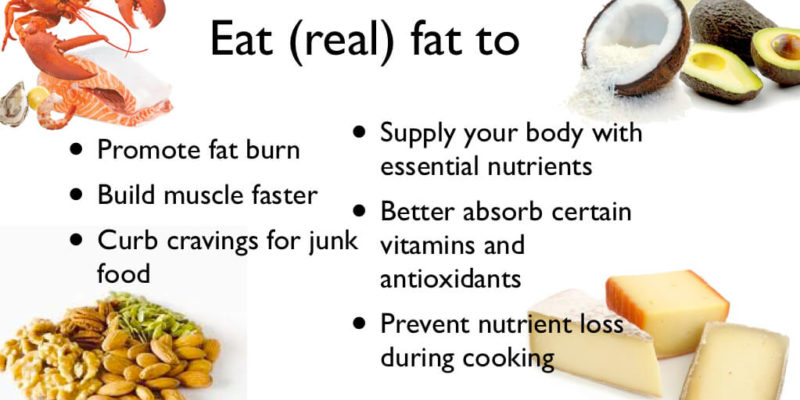



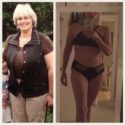



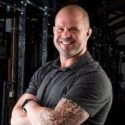






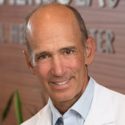

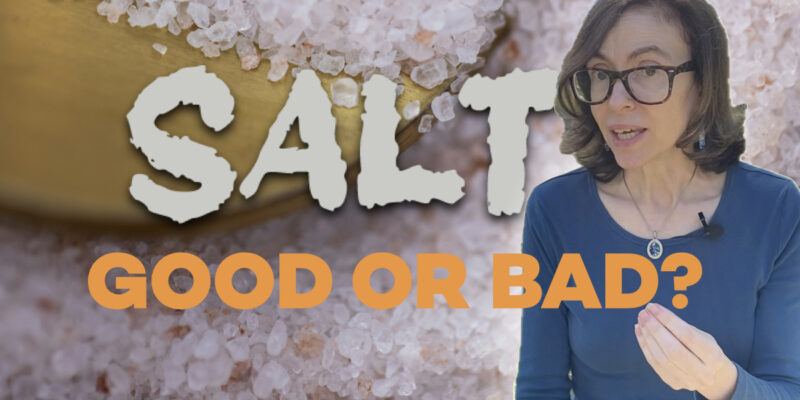
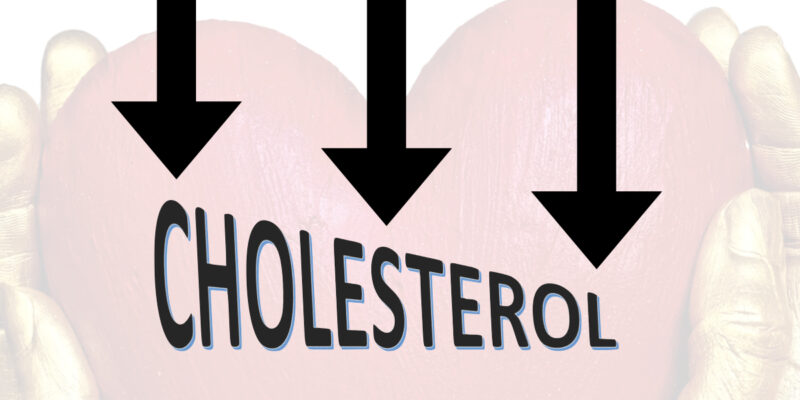

[…] Health Coaching / kids / real food Posted by Dana Shafir / 0 comments When I was 13, my dad, who was 41 at the time, suffered a heart attack. The doctors immediately urged him and the entire family to eliminate fat and cholesterol from our diets in favor of fat free food. That was the extent of how we knew to… proceed with food selection. During that time, fat free food (read: nutritionally-void, artificial, toxic, sugar-laden replacements for real food) was all the rage, and we stocked our pantries with anything that was labeled as such. I remember numerous occasions digging into fat free Entenmann’s cakes or spreading calorie-reduced wheat bread with fat free margarine and fat free cream cheese (seriously) because doctors told us that these products are better than eating meat, egg yolks, and nuts. Not only did it hurt my health during a vital developmental period, but it really damaged the way I came to view food. I have since unlearned the myths and ugly lies and replaced them with science-based evidence and knowledge. I now talk to kids (mine included) and adults (my parents included) about how to nourish their bodies and minds because I want them to avoid the years of damage and self-harm that a nutritionally empty diet will cause. A healthy fat diet IS good for you! […]
[…] This soup will fill you up, fight inflammation and make you swear it’s loaded with potatoes/carbs…but it’s NOT! If dairy intolerance is an issue for you read this excellent post from Mark Sisson. If you are still scared of healthy saturated fat you will enjoy this post by Dr. Cate Shanahan. […]
Channing,
You are telling me to eat RED MEAT? Doesn’t Harvard school of public health, most RD’s, AHA, etc.. Say that research says to restrict it? :S Anyway I will try to change my diet little by little a bit to look more paleo. I will not eat lots of meat, because I dont have access to non-cafo meat, exept the ones from cows but red meat has been linked to a lot of maladies so im scared of eating too much of that. Maybe I can start with veggies styr fried with small amount of coconut oil, having roasted tubers in same oil, fruit salads, and small amounts of non-gluten grains and beans. I do bad with fats, because I have tried o avoid fat fro most of my life, and the fats I have had have been vegetable oils. I’ve been trying to eat the Mcdoughall diet, But Im finding i hard to stick to strictly enough (no salt, no fat, no sugar, no meat, no processed food), though the majority of my calories come from carbs, mostly wholefood. Im very chubby (not obese), have annoying dark circles, my teeth are sensitive, and I dont really feel very good. I think I have add symptoms, coming and going depression, fainting spells after eating, low energy. Thats why im going to give changing my diet to look more paleo-ish, lower-carb (not low carb), see how I feel.
Liz:
You need a clean slate. Social pressure must be in your life and it’s now necessary for you to listen to your body and try new things. I suggest that you ASSUME, temporarily, that you are gluten intolerant and casein (milk protein) intolerant, follow the right diet for that, and see how you feel. Eat no fats other than organic coconut oil, organic olive oil, organic hemp oil, and Kerrygold butter from pastured cows. Continue eating your organic green veggies, especially leafy greens. AVOID ALL GRAINS, PERIOD THE END. Whatever is made with flour, of any kind, even “gluten free” for now, just avoid it. Organic potatoes may work for you, to give you some starch support, but only if eaten with lots of butter, or low-heat fried in coconut oil and Kerrygold. Use a heaping serving spoon of coconut oil and about 1/8 pound of butter. Use only organic red and gold varieties, cut into pieces under 1 inch, and fry for about 40 minutes no higher than medium, turning frequently with the spatula. When crispy, eat and enjoy. Avoid all legumes except for green beans and peas, and never anything canned, except black olives and sardines. YOU NEED ONLY 1/4 POUND OF PROTEIN PER MEAL, just 4 oz. You can get by with less. Try chia seeds, allowed to soak in water for a hour where they swell up, the add some lemon or lime juice and eat/drink, possibly along with a level teaspoon of coconut oil. Never, ever in your life again eat vegetable oil, especially canola, sunflower, safflower. soy, and avoid all soy products except soy sauce and tempeh. The good meat and fowl are at farmer’s markets, or you may have to use the Internet to get it by mail — they know how to do it. Once you are feeling better, you can try adding stuff back — except that once you are feeling better you will probably be content to continue your new way of eating.
Be sure to reread Dr. Cate’s book.
Best wishes,
Channing
Error noted, in that hemp oil and olive oil are very important but should not be labeled as saturated fats.
Janine:
Ketosis is when you have burned all of your sugar and you are burning ketones, the body’s preferred fuel. Our ice age ancestors ate on a different schedule, and their ketones kicked in after a period of no eating. Then they would possibly have been very active in hunting large mammals and consuming almost all parts of animals’ bodies. Fat would have been prized as a most desirable nutrient. In winter, they possibly would have eaten only meat and fat, with some dried vegetable nutrients, including tubers, nuts, veggies and fruit. Eskimos in their natural state are extremely healthy and eat mainly meat and fat.
I note that you are shifting in and out of information you have gleaned from corporate propaganda and information from well informed sources, such as Dr. Cate. As you continue your search, you will find other voices echoing what Dr. Cate explains in her book. Remember that the right saturated fats are perhaps your most essential nutrient, including organic raw coconut oil, butter from pastured cows, hemp oil, and olive oil, the last two should not be used for cooking. Then add high quality animal protein, including free range USDA organic chicken, pastured beef fed only grass until slaughter, lamb, USDA organic turkey, and wild caught fish. Then add USDA Organic fruits and veggies. Stay completely away from all grains and all dairy, other than the butter, until you have your situation under control.
Best wishes,
Channing
this is a great blog, and i have learnt a lot the past 2 years about how eating fat is healthy – i have seen a bit improvement in stability of mood and hair and nails since eating more fat. (i read dr john briffas book escape the diet trap)
ive been on a ketogenic diet for the past 2 years, however after continual weight gain i am now concluding its not for me. previously i managed my weight fine on good carbs, moderate protein and moderate fat. i do have issues…. i have had eating disorders for ten years (anorexia, then bullimia, now bulimia/coe) and ive been trying to overcome this. i am eating when i am not hungry, this is the problem – low carb does satisfy my appetite but that is not the issue (stress eating is)
and i have been gaining weight because i am probably in ketosis at times, then i am having binging episodes say a few times a week (on bad carbs), which, combined with a high fat diet is going to cause me to put weight on.
i can’t cope with this anymore, and since i am not getting very far with stopping my binges, (am currently working on this) do you think the best thing for me to do is to up my carbs and lower the fat? something like a south beach eating plan? not aiming for ketosis. i need a healthy plan that is workable. everyone is on about low carb low carb low carb – and i agree it sounds the best plan, but it is just not able to work for me given the way things are.
just so that when i do cheat its not going to have such a drastic effect on my weight. since starting lowcarb i have felt better, but i have gained almost a stone. i just can’t do it anymore, and don’t know where to go from here. i can’t tolerate putting on any more weight but at the same time ive learned so much from this way of eating it seems a shame to turn back to low fat just because of my eating disorder.
please help!
[…] indigestion, acid reflux and all sorts of horrible other things. Also you know this huge “saturated fats are bad for you” that everybody’s shouting about? They only make you gain weight… […]
Posted this previously but you may have missed it to reply—I’d really appreciate you thoughts, Dr. Cate:
I’m almost done with “Food Rules” (love it!!!) and I have a question about fats. What do you think of hi-oleic sunflower oil? I know it’s very low in omega-6. Or should I avoid ALL veg oils entirely?
Thank you for sharing so much great info!
It’s best to avoid all processed, refined vegetable oils and usually you can tell by the price and the taste whether it’s processed and refined to the point where it’s harmful. Generally any oil that is cheaper than peanut or refined to the point of flavorlessness is harmful.
[…] to be and gasp! may even have some important health benefits. Don’t believe me? Check it out here and […]
All great info. And have read Deep Nutrition (plus given probably 12 copies of it out to various people, including my doctor). But I do have two questions about the meat thing. We’ve been doing a lot of slow-cooking/braising of meat on the bone, and making lots of homemade chicken broth from pastured chickens. But if a meal made like that is reheated in the microwave, does that destroy the benefit got from slow cooking? I haven’t been microwaving, but my boyfriend does all the time. When he asks me what’s wrong with it, I can’t really say I’m sure it is bad. It’s just a gut feeling. Second thing — if one does slow-cooking with a pressure cooker (I hear it makes the meat incredibly tender) — is that ok? Or does pressure cooking also damage the benefits gained from traditional slow cooking?
Last random comment. Dr. Weil’s anti-inflammatory food pyramid contains canola oil, soy milk, and similar on it! Dr. Cate — you need to send him your book!
Thanks!
Tough to be certain without a tradition of success behind it, but based on the fact that the increased pressure reduces the time, and that kinetic energy is a function of time/temp/pressure, so it should balance out. The real question is: Do the taste and texture come out right? When you microwave raw meat, it’s not the same; the texture is rubbery and weird. But if pressure cooked food is truly indistinguishable from slow cooked to the senses, then it is very likely to be nutritionally identical as well.
Meat from the free range, USDA organic turkey was the kicker. It was always so good on Thanksgiving. Reheated in them microwave, it actually cause stomach upset. Microwaves reorganize the molecules. It’s not the same meat. We got rid of ours. We bought another one to warm up those little cloth stuffy things my wife likes to put on her neck at night. We never, never ever use it for food. I reflect with regret on all of those years of stupidity when we cooked with the microwave, damaging our health every time.
Thanks to both of you for the reply. That makes sense. Also just found an article that describes how a microwave works, and how it changes food molecules. It agrees with what both of you said about changing the food. It references some interesting studies on the topic as well (not sure if this or the other studies are valid or significant though). Another no-no it mentions? Warming blood before a transfusion. (Yikes!!) Here’s the article in case you’re interested:
http://www.health-science.com/microwave_hazards.html
Will add “microwaving” my list of nutrition don’ts!
Thanks again for taking the time to respond!
I personally feel sluggish doing high fat. Right now Im trying a vegetarian style diet, most of my calories come from fruit, tubers, white rice, I also have leafy greens, and all the other vegetables when I can, and I also have wild tuna, and haven’t yet, but will have an egg when I so please. NO ADDED FATS. I feel much better I must say. I also have soy meat and almond milk, maybe I should cut out the soy meats -but they are so good!-.
The transition to the ancestral diet takes time. Doing it right means connecting with a holistic practitioner of integrative medicine, not your typical AMA physician. The AMA folks are trained to identify problems in isolation and prescribe medications or surgery. If treating one problem leads to something else, they treat that separately with more meds. That’s why people end of taking a huge number of medications, most which are for the purpose of dealing with the side effects of other medications.
Holistic, integrative medicine looks at the body as an integrated whole, asking why cholesterol is high as part of the body’s overall pattern of functioning. Effective testing can be a great first step in finding answers. The typical blood tests, focusing on serum levels of essential vitamins and minerals, and how the body is functioning, are not as effective as those that remove the serum and focus on blood cells that have absorbed the components and retain them for some time. Serum may vary by the hour, while the blood cells’ contents remain stable for some days, providing a more accurate reading of what’s going on. Genova Labs provides such testing, and there are others.
Further, most who people just getting started will tend to go halfway in their embracing ancestral nutrition. The only fats I allow are raw coconut oil, organic olive oil, bovine growth hormone-free butter from pastured cows, and organic hemp oil. That’s it, period the end, except for naturally occurring fats in vegetables and in pasture finished beef, chickens, turkey and lamb. I never use anything from soy, as most soy is GMO, and even organic soy messes with our hormones. Fermented soy from organic beans is okay, like tempe.
I eat no grains of any kind, which was the way of the ancestral diet. Some seeds work, and nuts when they are soaked for several hours with a little salt and then thoroughly dried. I eat no dairy except for the butter mentioned above, also the manner of the ancestral diet.
Discipline is needed, and persistently reading various books that expand one’s knowledge of the principles and practices of ancestral nutrition. It took four million years for the diet of hominids walking upright to emerge in homo erectus. That’s our pre-homo sapiens sapiens ancestor who provided us with our present digestive system. Then the brain continued to evolve. It has been said that our biggest mistake was to abandon our ancestral nutrition of the pre-agricultural era. We cannot go back, but we can begin to harness our agricultural technology to serve as well in our need to return to that diet.
Good luck, Liz, in your pursuit of the only nutritional program for which humans evolved.
Over at Chris Kresser’s website, there are many people that have made the leap, and have been on paleo diets from 2 years to more. Their stats are scary -it scared me-. High Colesterol, HDL lower than LDL, I dont remember the others like trigs, but the numbers where overall very bad, many of them had their doctors say they had to go on STATINS. Some had their doctors say they needed statins before, then they ask for time, did a nutritional intervention with a high fat paleo diet, and the numbers got worse, when they went back they HAD to take statins or else, their doctors said. Maybe these diets are unnaturally High in fat intake, since people can pur the stuff on everything.
I’m almost done with “Food Rules” (love it!!!) and I have a question about fats. What do you think of hi-oleic sunflower oil? I know it’s very low in omega-6. Or should I avoid ALL veg oils entirely?
Thank you for sharing so much great info!
Hi Dr Cate
Thanks for your response. The problem with the wild ideas is that they come from a PROFESSOR!! of Emergencey Medicine from the the University of Perth Australia! From your work and the work of Mary Enig, Natasha Campbell-McBride and others I have to say that I no longer exclude Saturated Fats from my diet and now use coconut oil for pretty much all our cooking. Neil
I did come up with a way to begin to address his confusion: This professor I am sure means well but unless he himself acknowledges that there is no such thing as “saturated fat” in nature, it’s all blends (as Mary Enig points out), and also acknowledges the confounding that arises from discussing at studies written by people who themselves fail to understand the reality of lipid oxidation, then in spite of his professorship he is not really be educated enough to discuss this intelligently. (Besides, it’s a chemical issue, and not part of ER doctor education.)
Dr. Cate,
I recently read your book Deep Nutrition and have started to follow your diet suggestions.
I have a questions concerning liver. Since the liver is a blood filtering organ, is it very important to consume liver that is anti-biotic and steroid free? And the follow up questions is should I just skip eating liver until I find an anti-biotic and steroid free source?
Thank you,
Rick
It’s more about avoiding the petrochemicals, in my view, since antibiotics and steroids are not going to be stored in the liver.
Hi Dr Cate. As mentioned in previous correspondence your book has really made me re think some pretty fundamental ideas that permeate most of the multiple sclerosis diet based literature. In particular the swank diet and its more modern equivalent the OMS diet advocates practically Zero saturated fat, zero red meat and zero dairy while allowing unrestricted grains and sugar. I would love if you took a few minutes to read this brief summary from Professor George Jelinek as to why he thinks saturated fats are not good for any/all chronic diseases. From reading your work and the work of others I am not sure his hypothesis is accurate and I would appreciate your clarification as it is obviously important to me!
‘We now know that the melting points of these fats determine one of their important properties, that is their stickiness and flexibility when they are incorporated into the cell membranes of bodily cells. Body cells are surrounded by an envelope, the cell membrane, that is made up of fats. Our bodily cells are not static objects, they are constantly being re-made. Depending on where they are in the body, they may be rapidly being re-made, like in the gut or the skin, or only very slowly being re-made, like in bone and cartilage. But the fats which make up the outer layer of these cells come from the diet when they are re-made.
If the fats in the diet are mainly saturated, then the cells behave accordingly. That is their membranes will be hard and inflexible and tend to stick together. This one fact is really at the heart of the current epidemic in Western countries of diseases due to cells sticking together. Diseases due to clots, like heart attacks, strokes, and deep venous thrombosis, are all the result of this increased stickiness. And tissues and organs made up of these hard and inflexible cells become hard and inflexible.
So the big blood vessels coming out of the heart for instance become very rigid, in a process called atherosclerosis, or hardening of the arteries. So when the heart pumps out blood, the pressure rises much higher than if the arteries were soft and flexible. Hence high blood pressure (hypertension) results. If polyunsaturated fats were the main fats in the diet, the tissues would be soft and pliable instead, and so less likely to clot or result in high blood pressure. Hard cells are also more prone to degeneration, and degeneration is now known to be a key part of the development and progression of MS.
But the saturated fat multiple sclerosis connection is more than just about melting points. There is another important part of the story. Fats form the basic building blocks of the immune system chemicals. A diet high in monounsaturated fats is essentially neutral for the immune system. One high in omega-6s results in immune chemicals which promote the inflammatory response, and one high in omega-3s results in chemicals which suppress the inflammatory response. Obviously, this will be important in a disease where inflammation is at the heart of the disease process., I would love your hear what you think of this view because it does offer some contradicitons for me that need clarifying ! Thanks again for your great work. Neil
I honestly don’t know where to begin to address the logical errors with the idea that the melting point of saturated fat is a problem. You could just as easily take advantage of people ignorance to argue that the melting point of unsaturated fats are too high and that’s their problem.
There are many wild ideas out there and I suggest that maybe you would enjoy reading a few biology or chemistry books and coming to a better understanding of some pertinent details. That will no doubt help you reject many other wild theories as well!
Neil:
I was shocked that anyone — ANYONE — is recommending that anyone eat unrestricted grains and sugar. That is a recipe for disaster.
The problem with some experts is that they make logical conclusions, from research data, based on highly focused inquiries. That is, they separate out certain aspects of how the body functions, concentrating only on that. That is the rather gross error of industrial medicine. First treat this, then treat that, and, oh yeah, now a new problem pops up so treat that, each with some different medication or highly focused diet. The result is a cascade of new problems and, not inconsequently, more money for those practicing industrial medicine and the pharmaceutical giants. The reality is that the human body is a highly complex system of interrelated elements (subsystems), each functioning in their own right and each inextricably connected to all of the others. We are just scratching the surface and we have already learned a great deal. If there is any one single mistake that people are making in tending to their health, it would eating grains, of any kind in my case, and sugar. A little honey is okay for some people as it digests differently than sugar; but not much. If you have not actually read Dr. Cate’s book, this would be a good time.
Best wishes,
B. CHANNING HILLWAY, PhD
Hi Channing: In defence of Dr Jelinek – he does not advocate eating unrestricted sugars and grains – they are just not excluded from his recommended MS diet. I know the difference might be in the semantics but there is a difference 🙂 Also in his defence he is a major advocate of a dietary approach to overcoming this disease and openly admits that his medical training is totally insufficient when dealing with chronic disease. He advocates what appears to be at first glance a healthy enough diet – veg, fish, – sunlight, meditiation and yes grains and severely restricted sat fats – less than 20 grams per day! And yes I have read Dr Cate’s book and hence my epiphany! As mentioned previously he has remained very healthy and could argue that the proof is in the eating! On a personal level I was less successful on this diet and I now believe that it is not the best way for me and so follow more or less the advice in Deep Nutrition… the bloody steak excepted 🙂
Neil, thanks for your clarification. The best way to cook your meat — and only pasture fed until slaughter (pasture finished) is acceptable — is to roast it, steaks and burgers excepted. The roasting is at 200F for four or five hours, depending on the cut. I usually put it on on parchment, in a glass pie plate, and coat with olive oil to reduce evaporation. It makes for easy cleanup and saves the juices with no cooking onto a glass or metal surface. The meat will be a cooked red, different than a rare steak, and the juices will mainly remain. Those that do find their way out onto the parchment are a yummy treat. Such cooking also tends to tenderize the cut, such as a chuck steak of roast, so many more cuts are easily cooked without any dreadful marinade or other pollutants. Brisket (the square cut is better) is wonderful cooked in this manner.
I have to avoid all starches, but I do enjoy winder squash such as turban squash. I split it and place the cut side down on parchment paper, in a pan with sides, and then add about an inch of water. 90 minutes at 350F usually does it nicely, quicker in a convection oven. I remove the seeds after cooking as it’s much easier. Then I slather on the Kerrygold butter, or other butter pastured dairy cattle with no BGH. The squash tastes sweet and yummy, just like raw young carrots, which is a taste missed by people who are consuming refined sugar, whose taste buds have been ruined.
Neil, to get a different and enlightened perspectiveon nuerodegenerative diseases. please read and or listen to this counterpoint on nuerodegenerative diseases and diet. This is Dr. Ron Rosedale. It will be a challenge to your beliefs but then ‘question your own beliefs as much as you question others. http://www.meandmydiabetes.com/2011/09/14/ron-rosedale-neurodegenerative-disease-hormones-and-diet/
Correction: All fruits have seeds. The correct ones to eat are where one does not eat the seed. With many fruits, it is impossible to not eat the seeds.
Dear Liz, please reread this article by Dr. Cate. Of the 3 macronutrients, carbs, fats and protein, fat is the healthiest of the 3. It is the one macro that you are eating the least of. You say you avoid fat. Your nutrition is backward. You are feeling blood sugar and insulin surges. Easy to check. Go to WalMart, get their cheap mini reli~on meter. Check your blood glucose before eating. Check 1 hour after. Do your grain meal then do a low carb, meat, veggie and fat (butter, ghee, cream sauce on your meat) meal. Which one drives your blood sugar the highest?
Read Dr. Cate’s blog, read Marksdailyapple.com, go to drrosedale.com and read Dr. Ron Rosedale. Non fat and low fat is sooooo 80s.
Andre Chimene, thanks for the links. I generally feel pretty crappy. Im wondering if its because of all the grains I eat. I just had pan grilled chicken with brown rice (soaked 2 hours with lemon juice) and a little bit of raw cashew butter on top. I felt… horrible soon after. Very tired. I panicked and grabbed some cereal wich made me feel better for…5 minutes, then super tired again. I guess this is the rollercoaster ride they talk about with grains and processed grains. I dont know if getting my fat intake super low would help with it, but is that even healthy? I dont eat much fat as it is (I avoid it). If I work out a bit after eating such things I feel a bit better. Still tired though. Im glad to know butter and coconuts are safe XD
Liz:
Try avoiding, for three weeks, any food that is a seed — that would include all grains, but take it all the way to all seeds — and all dairy except for cultured butter from pastured cows (such as Kerrygold). Also avoid all starches, such as potatoes and sweet potatoes, and all members of the nightshade family, including tomatoes, peppers, eggplant, and, again, potatoes. Also, I would recommend avoiding all chicken and eggs for the three weeks.
Eat either pastured beef — USDA organic — or the leanest beef with all fat removed; lamb and wild caught fish. Avoid pork. Eat organic only fruits that do not contain seeds, carrots, summer and winter squash, all dark leafy greens like spinach and chard, green peas and green beans, beets and beet greens, and onions may or may not work for you. Limit your fats to organic olive oil purchased in dark bottles, raw organic coconut oil (a great food for you — Nutiva is good), and cultured butter from pastured cows (Kerrygold).
Avoid all coffee and chocolate as they come from seeds. Drink lots of water, organic green tea (Organic India), and organic tulsi tea (Mountain Rose Herbs). If you are having a caffeine crisis, organic black tea will work so long as you have none after 2pm.
Stick to the plan I have outlined for three weeks and see how you feel. I know it may seem to be a major change. It may be precisely what you need. If it works, come back here and let us know.
Greg, challenge accepted. My blog, Diabetes is BS.com goes up this month. Now, accept my challenge. Provide just 1, Type 1 Diabetic who has followed your methods and can show better labs and biomarkers, with no complications, than either Dr. Richard Bernstein, 80 years old, or myself, at 55 years old. I will quit and follow you if this can be done. That is the truth. Truth is what works.
Sat fat does not cause CVD. Catch up to truth. http://www.ncbi.nlm.nih.gov/pubmed/20071648
You also show your ignorance of a disease , diabetes. Only 5% do not make enough insulin. The other 95% make too much. They are insulin resistant. 71% of all studies are based on false logic or fraud. http://www.sciencedaily.com/releases/2012/05/120529181145.htm
We agree on the efficacy of health modalities beyond allopathic medicine. we agree on benefits from TCM and Auyerveda. I merely propose adding more arrows to your quiver of knowledge by understanding the biology of aging. It will only make you stronger.
“All truth passes through three stages: First, it is ridiculed; Second, it is violently opposed; and Third, it is accepted as self-evident.”
— Arthur Schopenhauer
Lastly, one of my mentors, Dr. Ron Rosedale explains health at the Acestral Health Symposium, 2012…http://vimeo.com/54542119
Here is today’s news,
“Great efforts have been paid to TCM’s modernization, which tries to bridge the gap between TCM and modern western medicine.” http://highwire.stanford.edu/cgi/medline/pmid;23203875
Bring TCM into the 21st century, Greg…bridge the gap.
Dr.cate, Is Saturated fat really ok? Im afraid of ending up getting a heart attack thinking its completely safe. I can’t do a ketogenic diet, whats available to eat for me differs from time to time. Sometimes I have bean and vegetable soup, roasted/baked potatoes with a small amount of butter on pan, sometimes rice (generally brown) and lentils, sometimes whole grain bread (i try to get one with no trans fat or soybean oil), sometimes I have boiled chicken with onions and potatoes, or celery stick, or a berry spinach smoothie.
in this context, are saturated fats okay? like butter? or should I avoid that sort of thing because Im having carbs?
Liz, you’d feel better if you learned a little more about what terms like saturated fat actually mean. Margarine contains saturated fat and margarine is bad for you. Butter contains saturated fat but butter is good for you. How is this possible? Nature does not make bad fats. We do.
After you read Deep Nutrition, chapter 8, entitled Good Fats and Bad, I believe you will be able to cook with confidence.
Hi Cate!
I’m really horrible at following rules, so I chose two: (1) good fat & (2) minimal sugar. Then I redefined what was commonly known as sugar to include all carbs, with knowledge of nutrition content. That seemed to be the most important thing. My recent split-pea tongue soup was an advanced maneuver.
Back when I was a bulimic & for many years thereafter, I ate loaf after loaf of bread and boxes of crackers. For years I would not allow bread in the house. If it came in, it didn’t last more than 10 minutes. Now that I live with someone else, I can’t expect him to change his life entirely to accommodate me. The solution? About a pound of butter a week. After two slices of bread with just under 1/4 inch of butter, it’s easy to put the rest of the loaf away. That seems almost as crazy as eating the whole loaf to most people, but it is WAY more satisfying and I come away from the “snack” with as much mental stability as I went into it with. Which is saying a lot. I mean, I eat a lot of other fat too (say “cheese”) but the fact that I can eat a piece of bread in a controlled manner is astounding. To me.
FYI I had a baby 8 months ago & lost the belly in just a few months with (unfortunately) very little exercise. And I’m 39. Hey, Cate, so I’m gonna write a book called “The Baby Belly Butter Solution.” Okay? Just as soon as this baby learns to nap…
Hey Jes, let’s have a photo of that baby belly flab butter solution sandwich next time you take a bite! (I’ll post it for you)
Greg, there is nothing more to talk about. I am not attached to my views. I am always searching and working the best to find truth. That is why I went beyond where you are now. I will go beyond where I am today. It does not mean that my recommendations of the diet composed of high fat/moderate protein/low carb are going to change. If I come accross a better way, I will change. Truth is what works.
Your ignorance of Pritikin and Diabetes speaks volumes of how little you know. Diabetes is a model for advanced aging. Understand diabetes and you understand the biology of aging. Understand the biology of aging and you understand all disease. If TCM and Ayurveda were the answers.. then the 2 countries that developed them would not be drowning in disease.
I work here in India. I see it. I have done over 5 years in the trenches here. My knowledge comes from experience as well as “book learnin” and guru following. You come to India and work in the filed .See what works. Truth is what works. Your methods are not enough. I have used them, and they have failed. I am 20 years ahead of you in this field.
Believe what you want, till you have worked and cured…your “beliefs” are unimportant, they are merely religion.
Again, I put the gauntlet down. If you can produce 1 patient that follows your guidance,in their 50s, as I am, Type 1 with biomarkers that exceed mine or just 1, Type 1 in their 80s that exceed the biomarkers of Dr. Bernstein, then I will quit and follow your gurus. Diabetes is a model for advanced aging. We are the poster child for all diseases.
Prove your beliefs. Prove it! Walk the talk or stop talking.
Once again, my appreciation for Dr. Cate and her forum. Dr, you were terrific in the “safe Starch” debate with Dr. Rosedale. I look forward to meeting in the near future. Andre
Andre, you’re right…there is nothing more to talk about. You’re brainwashed. I have all of mainstream medical research, and at least two very old and well-respected medical traditions to back up my “beliefs.” High-fat/low carb is dangerous and is associated with reduced life expectancy. Decades of medical research support this, and if you want to toss out tens of thousands of scientific articles because of your personal experience in the “trenches” and what a couple doctors have taught you, that is your choice. I don’t work with diabetics so like I said before, I can’t comment on that, but it doesn’t seem likely that there is only one way to treat diabetes…Biomarkers are important, but they are not the whole picture…I don’t walk around with a lab kit so I will never be able to personally produce a patient that exceeds your biomarkers…Incidentally, what if there were a way to manage diabetes without resorting to high-fat low carb diet? Wouldn’t that be great? Minimize risk of cardiovascular problems while also keeping biomarkers in the normal range…sounds ideal to me.
“Diabetes is a model for advanced aging. We are the poster child for all diseases.” Totally false! Diabetes is a medical condition, not a normal part of the aging process; it’s a relatively recent public health problem…used to be much less widespread…you have bought into a huge delusion right there! Understanding diabetes does not equal understanding biology of aging. Two different processes, but it makes for great marketing I’ll give you that! There is also no guarantee that if you understand the biology of aging you will also understand all disease. These are immensely complicated issues…And you are definitely not the poster child for all diseases…what a self-centered perspective! Would you honestly be willing to repeat that to AIDS or cancer patients? What about those with Parkinson’s or MS?
Andre, at the end of the day, you have found one set of methods for treating diabetics that apparently works for you and for them in normalizing their biomarkers and getting them off drugs. That’s great! I mean that sincerely…But be reasonable, Andre. You are dealing with a group of people who all have a serious medical condition and who are incapable of producing sufficient insulin. I am genuinely sorry to have to say this, but the scientific and medical literature is very clear that high-fat increases your risk of cardiovascular disease. Everyone else who doesn’t have diabetes can and should steer clear of eating a high-fat diet. (TCM and Ayurveda don’t seem to impress you…even though I told you that the current health of Chinese and Indians is not a good proxy for the validity of TCM/Ayurveda just like the health of Americans is not a good indicator of the validity and worth of western medical research…you are making a terrible argument here 🙂
I am going to put the gauntlet down as well and tell you to start a blog/forum for discussing successful diet therapies for diabetes and be scientific about it if you really want to advance knowledge on this issue. If you truly are not attached to your views and always searching and working the best to find truth, walk the talk or stop talking! Otherwise, everything you say is unproven and will remain so because it contradicts mainstream and traditional medicine.
Greg:
You are to be commended for your dedication to your position. If you want to be persuasive, describe the diet you recommend as it existed prior to the beginning of grain and seed cultivation. That was the big turning point — disastrous over all in my view — when the trouble started. Focusing on only on the hunter-gatherer diet, and allowing the herder-gather diet to be included, what would you include in a healthy diet?
I should tell you that I am recovering from leaky gut syndrome, my body does not tolerate gluten or other gliadins, my body does not tolerate casein and I stay away from dairy in general, and I do not do well with legumes or members of the nightshade family. The primal diet is the one that works for me, focusing only on pasture finished meat and fowl, wild caught fish, and lots of green and red veggies and fruits. Coffee, tea and herbs work for me.
Weston Price found that African tribes on a solely vegan diet were of smaller stature, had less well-formed dental arches, and were more likely to have cavities. The claims of cardiovascular disease in some indigenous species would be something where I would like to see how the data was collected. I suspect this is anecdotal information about indigenous people who had at least partially adopted the “civilized” diet and were, thus, showing diseases of civilization. You may remember that the one guy in the Swiss village who had cavities reported that he had spent a number of months in Bern, which is how he went off the diet and the damage began.
It takes only a short time for an improper diet to do its damage. I am in recovery from years of drinking sodas, eating all kinds of industrial food, and finally learning enough to actually address problems that I had tried to address in my 30s. I am now 71 and feeling healthier than I have in a good long time. We eat absolutely no processed, packaged food. We eat only from the meat and produce sections, farmers’ markets, Trader Joe’s, and Earth Fare when I am in the SE U.S. We eat a lot of good stuff that our vegan friends eat, but no legumes, grains or seeds of any kind, no dairy, and no nightshade for me personally.
So get rid of the stuff that cannot be gathered, including all cultivated grains and legumes, and tell me what would be in your primal diet.
I’m also sticking to my guns.
B CHANNING HILLWAY, PhD
Fair enough Dr. Hillway. The reason I commented on Dr. Cate’s blog was merely to share my personal experience that a high-fat, low carb diet (primal, paleo, whatever you want to call it) was a disaster for me. As soon as I started to limit fats and eat a more balanced diet that included a significant share of carbohydrates, my health immediately improved. In addition, I think it’s very easy for people to be suckered in by this kind of diet because 1) bloggers cherry-pick certain scientific articles to make their case and 2) Weston Price Foundation has marketed this diet very effectively. The foundation was created by Sally Fallon who has zero scientific/nutritional/medical training of any kind. The science is clear that high quality saturated and mono unsaturated fats are better for you than poly unsaturated and trans fats, and it also seems clear that eating small amounts of these high-quality fats may be beneficial…But there is absolutely zero evidence to suggest that basing one’s diet on these fats is beneficial in the long run, and there is several decades’ worth of research to suggest that eating too much fat and animal products is linked to cardiovascular disease. Note I said “linked” and not “causes.” Mainstream medical research has been pushing for a balanced diet that includes a blend of everything for quite a while, and carbs are the energy source of choice…not fats. Both TCM and Ayurvedic medicine say the same thing. I understand you do not tolerate grains, seeds, legumes and dairy, but isn’t it possible that your leaky gut was caused by years of eating toxic processed food rather than just “grains” or “legumes?” If you are one of the few unlucky ones with a genetic aversion to these, that’s one thing, but if not…all that fat and protein may lead to an early grave…Both the Inuit and Maasai have greatly reduced life expectancy compared to those in developed nations…and they have eaten zero processed food! (http://www.diseaseproof.com/archives/diet-myths-do-primitive-peoples-really-live-longer.html) I am sure it’s possible to find malnourished vegans, but what about well-fed ones in the modern world like the seventh-day adventists? They live up to 10 years longer than average. Eating animal products, up to 10-20% is probably ok, but the rest should be grains, legumes, vegetables, fruits, nuts, seeds, and maybe a little olive oil or butter mixed in for taste. Basing your diet according to evolution is very iffy because 1) we just don’t know exactly what our ancestors ate and in what proportions and 2) there is no one size fits all diet, only diets that work for each individual. Here’s another interesting paper that shows that different populations have differing amounts of amylase: (http://www.seplessons.org/files/amylase_evolution_paper.pdf) The author, Nathaniel Dominy has some other interesting theories as well, (http://review.ucsc.edu/fall07/text.asp?pid=1631)
Andre, it’s been good chatting, and your last post was very informative. I can tell you feel very attached to the beliefs that you have developed over the years, and I can certainly see how a high fat, low carb diet may help normalize blood sugar, but I would bet against it when it comes to long term health and longevity. I don’t know enough about the Pritikin diet or about diabetes so I can’t comment on the best diet therapy for that, but a brief search of the literature indicates that TCM treatment for diabetes was highly individualized, and focused on avoidance of alcohol, spicy, sweet, and greasy foods. Recommended foods were whole grains, vegetables, legumes, little fruit, some herbs. Maybe you didn’t get the right kind of TCM treatment, or maybe your diabetes was just too far advanced for anything but close to zero carb to work. Your diet may work for you now that you have diabetes, but the trouble with science and western medicine is the population-based approach to treatment. Each individual is different, and I maintain that recommending a high-fat, low carb diet for everyone is potentially very dangerous…Also, your statement that the Indian “grandparent” diet totally did away with grains is false. Grains were a mainstay. There is no way for a whole region to become vegetarian without grains and/or starchy tubers.
Both you and Channing Hillway should take a look at plant positive’s youtube video series which offers a thorough scientifically-based counter-argument to the primitive nutrition/paleo diets. In addition, you should both examine the existing literature on the health and longevity of the Weston Price hunter-gatherer tribes. I was surprised to find that although members of these groups were very handsome and seem to have had excellent teeth, many were actually plagued by cardiovascular problems, such as the Inuit and Maasai. Mongolians traditionally ate large amounts of fat, dairy, and meat, and their cardiovascular health is terrible, both in the countryside as well as in the city. Life expectancy is only 68 nationally! Can we really say that the only likely explanation for why they seem to have so much cardiovascular disease is because they don’t eat as many vegetables? Doesn’t seem very plausible to me.
Weston Price was a great man, but the foundation is promoting some easily falsifiable ideas about the “ideal” human diet. I am very worried about the current online trend praising paleo, low-carb, high fat etc. The science is unproven. It flies in the face of ancient medical traditions as well as thousands of years of civilizations based on grains. WP Foundation has made eating fat, eggs, grass-fed dairy, meat, and fish sexy by implying that if you eat these kinds of foods you too can enjoy the apparent radiant health of indigenous tribes, as popularized in Nutrition & Physical Degeneration with all of its beautiful photographs. WP Foundation is exploiting this unintentional marketing for its own benefits. Just because a foundation is “non-profit” doesn’t mean some people aren’t getting rich…I read N&PD cover-to-cover and nowhere in that book does he fully describe the diet of each and every tribe. He mentions certain components, but it is far from being a thorough, well-researched, all-inclusive catalog. Not only that, he doesn’t know their life expectancy or major causes of mortality…
Final thought Greg, I live by the quote “question your own beliefs as much as you do others” When I found that TCM and Auyervedic medicine were not enough to heal me, I questioned my own beliefs and found much more knowledge in the world. Then I found my Way out of the desert.
Thank you Channing Hillway, PHD. I enjoyed your clarity.
Greg here’s the real deal. I have done everything that you believe in and I have studied everything that you believe in. By following the traditions of ancient healing and a no fat/low-fat Pritikin diet, where I worked for six years as an exercise instructor, I got a nice trip to Diabetes land. Having metabolic problems and being fat when I was young, I ignorantly followed the teachers of ancient tradition and the 1980s scientists who all said eating no fat was the best way to go. I screamed through prediabetes to become a type II diabetic then all the way the end of the Diabetic Yellow Brick road ending up as a Type 1 , insulin injecting health wreck. This came after 25 years of thinking like you, that I was doing the right thing.
It wasn’t until I discovered Dr. Richard K Bernstein’s book Diabetes Solution, that I learned how to control my own blood sugars round-the-clock by severely restricting my carbohydrates. Next while in India working with diabetics I had the great fortune to meet and now with, for over three years, Dr. Ron Rosedale. Dr. Bernstein taught me the importance of normalizing blood sugars and Dr. Rosedale taught me the importance of normalizing insulin and leptin.
What I teach Indians here in India, from rich to poor, is to go back to the eating patterns of their grandparents, if they are a vegetarian. That means getting rid of all the grains, the wheat, the corn, oats and soy that Indians never ate before they started importing it all from America. That means getting rid of all the high omega six oils, soy oil, safflower oil, sunflower oil, that are Imported again, from America.
I have them get moderate amounts of protein from either a whey protein supplement or paneer or nuts or eggs. Carbohydrates…I have them ditch the grains, eat little lentils and lots of vegetables and a minimal amount of fruit.
Fat is where it’s at. This is the healing macronutrient that will not raise glucose, it will not raise insulin, it will not raise leptin. I have them add back in their traditional fats…whole milk fats, full fat cheeses and butter, Ghee. then they add back in coconut and coconut Oils. When they do this, they get off of all medications unless they are type one and they stay on insulin.
Truth is what works. If you do not employ the best of science and all the wisdom that is available to you, then you will remain ignorant. Taking all of your science from people who believe that the world was flat and that we were the center of the universe and if there were no other civilizations round the world or that we all sprang from gods whose names we have long-ago forgotten, is to put your head as deep in the sand as the proverbial ostrich does.
I fix blood sugars. I fix insulin and leptin. I give diabetics their lives and health back on a daily basis. I Work in the trenches and the towers. A traditional Chinese medicine doctor or an Auyervedic medicine doctor can improve blood sugars over what a horrible diet has done. But they have no understanding of the metabolic processes that are involved.
The point is…the two ancient wisdom’s that you count on as the only way to go are not good enough. The two countries that have the most ill health in the world are India and China. it is not due to population numbers. It is due to the horrible diets that they consume. India is number one in diabetes and heart disease. 60% of all heart patients in the world are in India. China is number 2 in the world in diabetes. China has an epidemic of obese six months old.
I use Traditional Chinese medicine and Auyervedic medicine, mainly herbals, as an adjunct to the proper diet for optimal human health. That diet is a low carb, moderate protein, high fat diet.
That diet was taught to me by Dr. Ron Rosedale. I am a student of the biology of aging. That is something that the ancient wisdom doctors had no clue about. They didn’t even understand biology. Oh, and what about Dr. Richard K Bernstein? He just happens to be the world’s oldest living type I diabetic with no complications.
I challenge you to show me one patient of yours, a Type 1 diabetic, that can match my lab numbers for health. A1c at 4.9. Tris at 50, HDL at 96, no coro.nary calcium. Low insulin and leptin. If you have just 1 , i will gladly turn my practice over to you and go back to my college musical career. The banjo ain’t so bad. So the proof is in the pudding, just don’t eat it.
Just a reminder that hominids walking upright dates back around four million years. That was possible due to the change in diet and the good bacteria in the gut that outnumber the total cells in our bodies. Walking upright signalled the end of eating large amounts of cellulose, such as we see in gorillas and other apes with big bellies. Walking upright signals an omnivore diet, including animal protein and fat.
Note that Eskimos have been found to be in excellent health, free of the diseases of civilization — until, sadly, they began eating the foods of civilization — and their diet was almost entirely of mammal and fish protein and fats. They get their vitamin C from the adrenal glands of the seals. We became homo sapiens sapiens because of eating animal meat and fat. Dr. Weston Price’s studies of indigenous peoples and their excellent state of health found that those living on a strictly vegetarian diet did less well, but those living on diets of only animal and fish protein and fat were in excellent condition.
The sacred rites of indigenous people tend to show deep respect for the spirits of the animals that nourish them and honor the quick kill that limits suffering. That is how it should be.
Social economist Jared Diamond has suggested that the transition to food economies based in growing grain may have been humankind’s greatest mistake. A good deal of reading is needed for the person trying to tie all of the various strands together to make sense of how we got to where we are, at present, from our smaller brained, proto-human ancestors to the sugar addicted world of today. We have the gut of homo erectus with a new bigger brain of our own.
The importance of the locavore movement cannot be overstated. Anything that will help us return to our original diet of organic vegetables, fruits, animals and fish is a step in the right direction. Sugar and grain is the structure from which the complex culture of a wide diversity of foods, universally bad for us, has grown.
This is the single most important issue of our time with the possible exception of global warming. If we could, in a single day, eliminate sugar and grain from our diets, the nation would immediately become healthier — provided that the organic vegetables, fruits, meat and fish were also immediately available to feed the people. If you take a moment to ponder the immensity of change that is necessary to bring about such progress, you will comprehend the immensity of the challenge before us.
Sorry…Dr. Cate!
Your answers are much appreciated by my readers, Andre. Thank you. And thanks to Greg for reading and sharing your views as well. I do have a chapter on sugar in Deep Nutrition that anyone who is interested in relationship between carbohydrate intake, blood sugar, and cholesterol may find useful.
Dear Greg, the condesending tone was momentary anger at the attack on Dr. Care’s post. I feel that if you are in opposition to her science and have a better way, create a blog and post. Let the chips fall where they may. So lets tone it down and first find agreement.
I am a big supporter and practitioner of Aurevedic Herbs and American herbs and herbal/Naturopathic healing modalities. I tell all of the Indians I am working with here in India to first, go back to your traditional diet of your grand parents. Not your parents. Add in Aurvedic herbs etc. They have their place.
The crux comes when you cross hairs with science. Just because something has been around for 10,000 years means nothing in the light of science. Ex. slavery, abuse, flat earth beliefs, astrology, superstition.. etc etc etc..existence is not interesting or science.
Feelings about science do not interest me. Truth is what works.
Lets look at your comments.
“Now, about some of the things you said…I just want to clarify a few things…I do not think that carbs = sugar.” ..this is an uneducated thought. So lets educate.
All carbs are 2 things. Fiber and non fiber. Fiber does not turn to sugar. All non fiber does. This is not a feeling, it is a nutritional fact. SO, in any carb, for example, that supplies 24 grams of total carb, the equation is as follows. Total carb – fiber =nonfiber. In my example, 24 tot carb -3 grams of fiber(a typical slice of whole wheat bread) =21 grams of non fiber carb. A slice of WW bread is 3 grams of fiber and 21 grams of sugar (glucose) . There are 5 grams of sugar in a teaspoon. Therefore, a slice of WW bread is over 4 teaspoons of sugar in your body. Get a diastix (which measures sugar content of food, chew bread, spit on stick, see reading…proof). All non fiber carb turns to glucose whether you like it or not. This holds true whether the carb is potato or rice or a carrot or broccoli or…………….
“Next, are fats important? Yes, absolutely. But I maintain that human beings should not consume the majority of their calories from fats. I think this will lead to ill health. You are right that cholesterol is important…but only in moderation”.again..I am not interested in your beliefs, I am interested in truth. Your health is determined by one equation…”the proportion of fat versus sugar you burn in a lifetime. The more fat you burn, the healthier you will be. The more sugar you burn, the less healthy you will be.” Dr. Ron Rosedale…fat is the evolutionary fuel for humans. It does not contribute to the 2 ways that we age. Oxidation and glycation. Fat can oxidate so dont eat O6 or easily oxidated fats, eat SAT fat and Mono. Sugar spurs oxidation. . What can you say in the positive to burning sugar for fuel? I might need to run away from a tiger? OK…but that is it.
Cholesterol. Do you understand how important cholesterol is in humans? No you do not or you would not have said “in moderation”. Cholesterol is needed in every cell of the human body for cellular repair. Cholesterol in animals is the equivalent of chlorophill in plants. The brain is over 65% fat and cholesterol.
I have been where you are and studied TCM and Auerveda and found them lacking. They are a piece of the puzzle but to blindly follow them is to ignore the advances in science that are constantly growing. The Chinese and Indians cannot get enough of our diagnostic tools. CAT Scans, MRIs etc…
My suggestion to you is to rethink your stance on fat and sugar. You will arm yourself with further knowledge to make yourself a more complete and effective healer. I followed your path at first and only later came to the knowledge that “ancient wisdom” is great but not enough. I am not an absolutionist. I am constantly examining my own beliefs as much as I question others. That is why I found TCM and Auervada and herbs etc…not enough. I am still searching for more truth.
” If blood sugar goes up and cholesterol goes down, what does this say about a person’s overall health and expected longevity? It says that your longevity is going down. High glucose/high insulin/high leptin/high mTOR… are all markers for advanced aging and disease. When sugar goes up, insulin and leptin go up. Lifespan goes down.
The work I do with Diabetics is to give the knowledge to achieve normal blood sugars, get off of Pharma meds (unless Type 1), end their hunger and understand that they can be free of diabetic complications and live a longer than normal, healthy life.
I wish you health and further enlightenment on your path to becoming a great healer. We will talk and perhaps meet in the future. Start that blog!
Andre,
“Truth” as you put it is an absolute. It leaves very little room for nuance and for change. You seem to believe that science = truth, but that is where we disagree. Is it a useful way to arrive at certain truths? Absolutely. But any real scientist will tell you that science is a constantly evolving body of knowledge always open to refutation and change…Just because some researchers, Dr. Cate included, seem to have found evidence to support the idea that fat is the optimal fuel for the human body, does not mean that this is, in fact, the case.
We can argue semantics forever, but with all due respect, your beliefs seem rather rigid and simplistic. For example, “All carbs are 2 things. Fiber and non fiber…All non fiber carb turns to glucose whether you like it or not.” Perhaps I should clarify…I was referring to the nutritional “fact” that refined sugar, while made of sucrose, a glucose dimer, is not the same as starch found in rice, potatoes, carrots, etc. which is also made of glucose. TCM indicates that what we simply consider to be carbs, actually is quite complex. A carrot and a potato have different properties and affect the body in different ways. It is much too simplistic to call them both carbs and leave it at that. A carrot is composed of hundreds if not thousands of different molecules. Do you know how much of each is absorbed and what effect each has on the body’s various organs? Does science? The answer is no. Too complex, impossible to measure and quantify. Do we need to in order to make sound choices about what we eat? Not necessarily. We can learn from tradition, just as Dr. Cate has, but I disagree with her interpretation.
If fat really is the “evolutionary fuel” of choice, why is the staple of all sedentary civilizations “carbs” (grains, legumes, root vegetables, etc.)? The reason I don’t start a blog dedicated to the “science” of nutrition is because we could argue for years about the validity and import of the science and still get no closer to understanding what we should be eating at any given time. TCM and Ayurveda address this question directly, and I would rather place my faith in what has been tried and proven to work over many thousands of years than in some new research which, no matter how vehemently you may disagree, is still unproven. We have adipose tissue which holds fat deposits, and in times of relative scarcity, we burn this fat for fuel just like many other animals…To then make the gigantic conceptual leap that we should make butter, lard, oil, etc. our dietary staples instead of grains and other “carbs” is nonsensical and ridiculous! Do you really believe that we should be eating a slab of butter and vegetables for breakfast? Your diabetics are going to drop dead from cardiovascular problems if that’s how they eat every day! This is why I was warning you and Dr. Cate against becoming too attached to the “science.” Just because humans have evolved the ability to burn fat, and that they seem well-equipped for the task, does not mean we should be consuming it. Fats, incidentally, are made from glucose, and glucose is only found in carbs! Your diabetics ate too much sugar, and they have irreversibly damaged their pancreas (or spleen in TCM). Without insulin injections for the rest of their lives (or other drugs that increase insulin sensitivity), they are well and truly screwed. The rest of us without a sweet tooth can go on eating carbs and live long, healthy lives. BTW, cholesterol is made in the liver. Show me the proof that all humans would die if they did not consume any animal products at all.
You seem like a nice guy Andre, and the world certainly needs more people helping diabetics. By the way, as far as you understand it, what is the traditional diet of Indian grandparents that you tell your patients to eat?
Dr. Cate, wonderful article that I shared on Facebook. The amount of work that is needed to bring the world back to the original diet is daunting. I appreciate your work. I also want to thank Andre for stepping up to share his report on India. I have read similar reports and his information is a refreshing reminder of the problems there. I know that the people of Okinawa are used as an example of how healthy it is to eat rice. But I suspect the long-lived Okinawans succeed because they eat high amounts of fish and fish fat, along with veggies and some fruit. Thanks, again, Channing
Hi Dr. Cate,
it’s my first time on your blog and I’m very impressed. I’m 90% vegetarian, just don’t like the taste of meat especially red meat and don’t eat pork for religious reasons. When I already eat meat I’ll have it very well done.
What diet would you recommend for vegetarians in order to get the proper amount of good fats and are you concern at all about the acidity of the fat and protein ?
In our book Deep Nutrition describe the Pillars of Traditional Cuisine that encompass a healthy diet and vegetarians can get all they need as long as they include fish (broth/bones) and eggs. Acidity issues that could arise from eating relatively more cooked food will be prevented with gentle cooking and if you take care to balance your intake of cooked foods with fresh.
Dear Greg, I appreciate that you are a champion for your cause. Good luck with that.
Now, here is the truth. You know nothing about nutrition. The science of nutrition is not too young. It is found in any good text book if you bother to read and understand what life is and where we came from. If you study basic biology you will understand that we are a member of the animal kingdom. We evolved eating a certain diet and that genes are not as important as epigenetics. What you eat turns on and off gene expression and the hormones that regulate health. Sugar turns on the genes for ill health and fat turns on the genes for good health. We can discuss hormones at a later date.
I happen to be in India where they are sadly, #1 in the world in heart disease (60% of all Heart Disease patients in the world come from India), diabetes and Cancer. China and India now lead the world in Diabetes, Cancer and Heart Disease. They are not good examples to point out or follow. Neither is the Standard American Diet. Eating for reproduction is no proof that what you eat is good for longevity. It is only proof that you will replicate early and over populate. Many animal species given unlimited food stuffs, irregardless of whether it is healthy or not, do exactly that. You are either reproducing or repairing. Reproducing does not make for good health. Nature is too concerned with the new life and the continuation of the genome to care about you once you have reproduced. China and India both have decreasing longevity.
You do not understand what cholesterol is. You do not understand that it is a vital nutrient needed in every cell for cellular repair. You are singing the exact tune of the last 50 years of bullshit nutrition advice that I too believed, in the dark ages of the 70s and the 80s. But it is time to step back and look at the evidence of the past 50 years of a low fat/high carbohydrate diet. It causes Disaster the world over where ever it rears its ugly head.
I work in India with diabetics. I tell them the truth. I see on a daily basis, what works and what doesnt work. Truth is what works. And the truth is that your health and longevity is determined by one equation…”The proportion of fat versus sugar you burn in your lifetime. The more fat you burn for fuel, the healthier you will be. The more sugar you burn, the more UNhealthy you will be.”
As far as Ayurveda, traditional Indian diets were high in fat. Original Hindus even ate meat. Next, they used lots of butter, Ghee and coconut oil in their foods. They ate little wheat, some rice, mostly vegetables and fat. Panneer, from whole milk, a pressed cottage scheese product is a big source of protein along with curd. Beans made up a proportion of the diet. Not a good source of protein, but better than grains.
As far as Traditional Chinese Medicine goes, it was a good system for its time, but the recommendations of eating tiger penis or rhinoceros horns for virility does not speak well of the methods involved. A lot of TCM uses these silly products with no truth behind their use. Herbs are , on the other hand , a great source of healing information. Both Ayurveda and TCM use plants. Great. You may be qualified to speak on them. Perhaps you are an herbalist. If so, stick to that. Diet and the evolution of the human species, you just dont get yet.
As far as scientific theory, you do not understand the meaning of the words..”scientific theory”. It does not mean that it isn’t real or provable. If that were so, then one could say that the “theory of gravity” is noot real or the “theory of evolution’ is not real. They are both fact. You are playing a game of semantics when it comes to the word theory. Not good enough.
Your statement that TCM/Ayurveda or old civilized medical tradition indicates what is the right kind of diet may be right. The problem for you is that you do not have the knowledge of what those diets really were. Come to india, I will be happy to educate you. Or I will meet you in China, where I will go next. I have been invited there as well. They both need more help than the US now.
I applaud Dr. Cate for allowing you to voice your dogma here. Light exsposes illogic and true value. What you propose does not work in the real world. Therefore, it is not truth. I repeat my mantra, Truth is what works.
Dear Andre,
Thanks for your post…your tone is a bit condescending and absolutist, but I am happy that someone answered my post…I was beginning to think that it would be completely ignored! The reason I posted was that I feel that scientists, physicians, and nutritionists are not giving enough weight to older forms of knowledge regarding diet and nutrition. I think this is a big mistake because civilized human beings have been around for quite some time now (maybe not in evolutionary terms, but 10,000 or more years is still more than the amount of time science has existed), and they have accumulated quite a bit of empirical knowledge during all this time. It may not be scientific, but I still think it deserves a closer look by all the smart, dedicated researchers we have working on this issue. I think that if we as a society can make an effort to combine modern nutrition science with an understanding of TCM, Ayurveda, and other older forms of medicine, progress in this area might accelerate. I am definitely not anti-science, but I understand that science has its limitations, and is but one way of perceiving the world. My point is…why start researching nutrition “from scratch” when you can look at what human beings have traditionally eaten and start from there?
Now, about some of the things you said…I just want to clarify a few things…I do not think that carbs = sugar. You are absolutely right that sugar causes ill health. I think that is in fact why so many people in the US are obese, and others around the world are suffering the same fate. Sugar is everywhere…if you are a company in the food manufacturing sector, the pressure to inject sugar into products is very high. People are addicted to it. And it’s not just big companies, it’s small businesses selling pastries, cakes, cookies, croissants, muffins, etc. There’s a big difference between that and a bowl of rice or some old fashioned whole grain sourdough bread.
Next, are fats important? Yes, absolutely. But I maintain that human beings should not consume the majority of their calories from fats. I think this will lead to ill health. You are right that cholesterol is important…but only in moderation.
Modern China and India are not good indications of the veracity of either TCM or Ayurveda. In other words, don’t stick your head inside an Indian or Chinese restaurant and think that you now understand everything there is to know about Chinese or Indian knowledge concerning nutrition. It’s a little more complicated than that. In addition, both China and India are plagued by overpopulation, pollution, diminishing resources…all of these affect quality and quantity of foods that are available.
“Eating for reproduction is no proof that what you eat is good for longevity.” Regarding this point, you and I are both interested in what promotes longevity (otherwise we wouldn’t even be commenting), and if we are interested, it seems reasonable to assume that our ancestors were interested as well and probably tried to answer this question. I don’t know about you, but I think we should at least take a look at what they discovered.
”And the truth is that your health and longevity is determined by one equation…The proportion of fat versus sugar you burn in your lifetime. The more fat you burn for fuel, the healthier you will be. The more sugar you burn, the more UNhealthy you will be.” Health is not ruled by one equation. An athlete who weighs 180 lbs and is 6 ft tall will need to eat differently from someone who weighs 130 lbs and is 5.5 ft tall and does not exercise as much. Both those individuals will eat differently during the spring, summer, fall and winter and when they are young vs. old. One will probably feel like eating more fat during the winter than the summer for instance. This is very well described in TCM but modern nutrition science does not even take this into account.
“A lot of TCM uses these silly products with no truth behind their use.” Very true. There are quite a lot of superstitious beliefs in TCM, but modern medicine used to espouse blood letting, lobotomy, and countless other drugs and procedures that have since been discontinued. Don’t judge an entire body of knowledge and way of looking at human health simply because it includes some superstition. No body of knowledge is perfectly accurate. People make mistakes and there are failures, and that is how we learn as a society. As far as I know, mainstream academic TCM practitioners do not give much weight to tiger penis, especially since it’s a nationally protected endangered species.
“You are playing a game of semantics when it comes to the word theory. Not good enough.” Let me rephrase: Modern nutrition science is reductionist and is at this point unable to quantify and measure chemically/physically/biologically the total effect on the body of eating various foods. It’s just too complicated a task. If blood sugar goes up and cholesterol goes down, what does this say about a person’s overall health and expected longevity? There are associations, but the only useful way to go about this is empirically over long periods of time. And a lot of this kind of research has already been done by TCM and Ayurveda…so why not start there?
By the way, what kind of work do you do with diabetics?
Hi Dr Cate,
We love you, and we love your books which have changed our lives. Thank you for your great insights into human health. Fermented radicchio rocks!
Can you please request your programmer to stop the subscription pop-up from appearing after a visitor to the site subscribes? I really want to read all of what’s written here, but every time I click, I get a new pop-up asking me to subscribe. I’ve already subscribed, so this should not be happening.
I’m an online marketer myself, and thought I’d share this with you as the constant pop-up might be a deterrent to many people’s peaceful reading.
Blessings and regards, Dr Cate. I can’t wait for you to write a new book! 🙂
We’ll fix the aggressive pop up box right away, thank you!
Another wonderful article dr Cate. Thank you. I will be posting it on my facebook page and encouraging people to read it and follow your blog. I love the way to present information and the wealth of knowledge that you have. I have both of your books and not a day passes by when I am not opening one of them:)
Dr. Cate,
I wanted to share my story with you. I read your book, Deep Nutrition, several months ago, and at the time it was one of many books/articles/blogs that I read about nutrition. I read Nutrition & Physical Degeneration, Kurt Harris’ Archevore, Primal Diet, Good Calories, Bad Calories, Paleo Diet, etc. While this may be an oversimplification, I believe you would agree with me when I say that all of them basically maintained (yours included) that fat is the best “fuel” for the human body, and that carbs (grains in particular) are not so great. After having experimented with the ideas in these books and others (not blaming you here at all), I am 100% convinced that much of this information is not only inaccurate, but downright dangerous. I know you’re a physician, and not just another fad diet book author. You seem to have the best interests of your patients and readers at heart (unlike many I have read). You really put in the time and energy to do the research, and this is why I feel it’s worthwhile to post something on your blog. I also know this is why people buy your book and trust what you say. I used to really believe in many of your ideas on nutrition, but I think it’s really important to consider a few fundamental assumptions about science and nutrition research in particular.
1) I completely agree with you that many people exist who seem to have the “complete package.” In other words, they seem to have beauty, intelligence, a strong and well-developed physique, sexual appeal, and many other favorable qualities all at once. Undoubtedly these people have inherited “good genes” and “good epigenes” and whatever else you want to call it. After 10-15000 years of civilization, these kinds of people can be found in the US, China, India, the Middle East, basically all over the world. Their existence proves without a shadow of a doubt that human beings have been eating enough of the right things and not eating the wrong things for 10-15000 years. If this were not true, these people would not exist. But they do. Civilizations have all been built on grains. Not on fat. I challenge you to find one example where this is not the case. Hunter-gatherer tribes do not count. The fact is, grains work. If fats worked better than grains as an energy source, civilizations would have switched to eating fats thousands of years ago. But they haven’t. Human beings were not stupid before science. They were just as smart as they are today.
2) The four pillars you mention are found in every major culture, but they are all just components of a diet based on grains and carbs. Back in the day, humans did not have biochemistry, molecular biology, gene sequencing, etc., but they had something much more reliable: empiricism. Trial-and-error x Time (thousands of years) = wisdom. You don’t have to look at HG tribes for wisdom, in fact, I am going to assert that the Chinese and Indians have the most advanced knowledge of nutrition on the planet. Traditional Chinese dietetics (TCM) and Ayurveda have between them observed and cataloged the effects of virtually every consumable food and herb in China and India. Take a look at anything these traditions have written and you will see that grains are the primary fuel source and fats should be eaten in small quantities.
3) Nutrition science is mostly theory at this point. It’s just too young. There is a big gap between what the theory says should happen and what actually does happen in the human body. Just because consuming fats doesn’t tamper with your blood glucose/insulin levels doesn’t mean it’s better for you than eating grains. Just because grains increase blood glucose doesn’t mean they’re bad for you. The truth is, it is currently impossible to track in real-time what happens at a molecular level in vivo in all parts of the body when different foods are ingested. This is why scientific theory is so potentially dangerous, because it’s just theory. No one knows exactly what “goes down” at the molecular level when we eat a bowl of rice vs. when we eat a lamb chop. We can’t even tell exactly or even approximately how much of what molecule/atom is absorbed by the body! Even though raw foods, for instance, have much more antioxidants than the same cooked foods, TCM is very clear that in general you should eat the cooked version regularly and raw foods less often. Probably, net, more antioxidants from the cooked version ends up being absorbed. This is why people cook their food. In the same vein, eating liver will only be beneficial based on how much your body can digest and absorb. Eating fat as the primary fuel source will tax your digestive system and ultimately cause what TCM calls disharmony. Forgetting TCM and Ayurveda, there is a mountain of evidence that suggests that high cholesterol leads to increased risk of cardiovascular disease. Both TCM and Ayurveda predict that diets rich in fat lead to heart problems.
I will end this post by asking you to at least take a look at what TCM/Ayurveda or other old civilized medical tradition indicates is the right kind of diet. High-fat, low carb is the opposite of what we need to be eating!
My family have been eating high fat (butter, cream etc), lowish carb, unprocessed, good quality food for nearly three years now – no grains, rice etc. Everything is home made and I regularly make bone broth from organic bones. My 23yr old son has been diagnosed a few months ago with sterno-costal chondritis and can no longer go to the gym or do any excercise. He also takes 5000k vitamin D3, 500mg Krill Oil, and Chondroitin Sulphate/Glucosamine. He used to drink quite a lot of full fat pasturised milk with whey powder, but has stopped this now. Any milk that I do buy is raw organic full fat. Can you think of anything else I could do to improve his diet that would help. He loved his excercise so much.
Lots of good work! For an outline of a truly balanced diet, click here: https://drcate.com/deep-nutrition-the-ancient-science-of-human-engineering/the-four-pillars-of-world-cuisine/
I have been on a grain free diet for 5 months now and I’m loving it! For the first time since having kids I have been able to lose weight! 26lbs in 5 months, to be exact. I had blood work done in April and my total cholesterol was 166 (I think) hdl/76 and ldl/78. I am planning on going to my doctor to get a physical in a weeks time and I’ve been a bit concerned about what my cholesterol levels will be. I believe that eating a grainfree diet is what’s best for me but I have to admit that, after so many years of eating low fat and fat free and having that preached to me as the healthiest food, it’s hard to wrap my mind around this full fat way of life….even though I’m living it and feel great.
Anyways, any words of advice for me when I go to the doctor? Do you have any clue as to what I can expect from my blood work results? (I eat whole foods, lots of vegetables, minimal fruits. Chicken, grassfed beef, pastured pork, eggs from pastured chickens, coconut oil, olive oil, grassfed butter, and sometimes fat from pastured bacon. I don’t drink milk very much just because of the sugar content but if I cook with it it comes from local, grassfed cows, non-homogenized, low-temp pasturized. Cheese is the only thing I do eat that is conventional. No coffee, some tea and about 100oz of water a day. I eat all kinds of nuts and seeds. If I have sugar its in the form of local maple syrup and local unpasteurized honey.)
The best way to improve cholesterol numbers is to cut carbs, so you should be fine. I’ll be doing a post specifically on why this is and what to expect as a follow up to this post.
I forgot to mention protein, and yes we are moderate amounts of protein from animal sources. I eat whole eggs, hard cheese, full at yogurt and even some local pasteurized but hormone/antibiotic free milk. I find this probably the biggest change for me as I have avoided dairy the last 20 years due to cramps, bloating and horrible gas even with enzymes. I think now that my gut has had a chance to recuperate from the sugar and grains, I can now tolerate the dairy. Would this explain it? I love being able to eat cheese!
Eliminating excess sugar (from starchy and sweet foods) which impair the growth of beneficial microbs compared to less beneficial microbes and eliminating pro-inflammatory fats are two big factors that promote repair of the GI system in ways that allow us to digest a wider variety of foods. So yes, it would explain your renewed ability to enjoy dairy. Yay!
I started a low carb, high fat diet 6 weeks ago to lower my blood sugars and try and stop the constant hunger. At 5’3, 118#, it was not so much to lose weight. My fasting blood sugars were around 105. For the first time in my life I went the first 3 weeks with no more than 50-60gm carb a day from 1-2 fruits and the rest vegetables. I increased my healthy fat to make up the rest of my calories and ate 1400-1600 calories a day. I checked my lipids about 2 1/2 weeks into it and my total cholesterol was 200, HDL 77, triglycerides 50, HDL 77, LDL 113. My A1C was 5.1 (too high for my liking). I checked them again today now that it has been 6 weeks and my total cholesterol is 219, HDL 86, tryglycerides 82 (2 cookies the day before), LDL 117, and TC/HDL ratio still at 2.6. My A1C dropped to 4.9 yay! I was a little scared to see the lipid numbers after eating so much fat but was pleasantly suprised. I have not been as good about no sugar the last 2 weeks but MUCH better than before meaning I have gone from daily to 1-2 treats a week. That is huge for me. Hunger will pop right back if I eat the sugar so it really deters me. My husband is ending a his 30 days of no processed, 50gm carb a day limit, no caffeine or alcohol. He has lost 12# after being at a stall for the last few months. He can run and not bonk! He is loving this way of eating. It works!
Great article Cate! I’m going to forward to all my naysayer friends. I have to be surreptitiousness about my fat eating among them. Low fat and non fat every blessed thing.
I wish we could get off this current craze. Unfortunately, while I eat fat, I eat too much of everything so am not losing weight like I’d like. I have your books and love your approach.
Where are you located these days? It might say somewhere on your site but I haven’t seen it.
BTW – you will be happy to know that your old house is currently owned by some very, very nice people. It seems to attract good folks. Bob is still there keeping the place beautiful. So is his cat, Qi, that he adopted from a dying lady.
Aloha,
Ellie (from Lawaiuka Road)
HI Ellie!
Thank you for sending your sunny Aloha our way and I’m glad our X-yard and X-kitty are being tended to so well. Bob is a good soul! We’re in Napa CA now and actively seeking chefs with recipes for our next project. Be well!
Since I have added healthy fats back into my diet, not only did I lose fat I didn’t even think I needed to lose, not only did I gain so much energy that I’m 3 times more active than previously, not only did my blood sugar regulate to normal so I no longer have migraines, besides all of those “not onlys,” I actually ENJOY eating! Being able to eat “healthy” meats and dairy with their fats, I am satiated throughout the day and left with tons of healthy energy.
I’m 54 and my whole life has been basically fat-free. That’s how we were taught to eat! But I spent 40 of those years with weekly migraines and not one doctor able to help. Since eating reading your book and opening my eyes to what we should be doing, I have been migraine free. My body and skin look younger than ever. I feel like every part of me is regenerating.
Very well said. When I get home tonight I will share this on Facebook! I get so upset when I read nutitional recommendations that continue to emphasize low fat dairy and lean meats. Keep on spreading the word!!
Thanks for this summary…I’m often looking for articles like this to recommend to my friends. Some of my questions: have you found any folks who, due to a lifetime of poor nutrition, etc., simply cannot optimize their fat digestion? What do you recommend in this case? Are more carbs “needed” by these people?
Regards,
Sarabeth
They don’t need more carbs, they need to turn back on some little-used fat digestion enzymes (just as they need to turn back on fat-burn enzymes). The body can do this but it takes patience. Start slow.